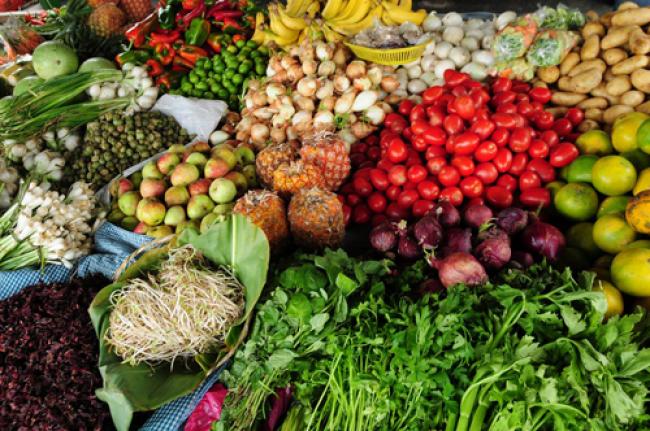Economy
World / Countries / MNCs World need 70 per cent more food: UN
04 Dec 2013, 08:46 am Print

New York, Dec 4 (jen): The world will need 70 per cent more food, as measured by calories, to feed a global population of 9.6 billion in 2050, and must achieve this through improvements in the way people produce and consume, according to a report released Tuesday by the United Nations and its partners.
“Over the next several decades, the world faces a grand challenge – and opportunity – at the intersection of food security, development and the environment,” said Andrew Steer, President of the World Resources Institute (WRI), which produced the report along with UN agencies and the World Bank.
“To meet human needs, we must close the 70 per cent gap between the food we will need and the food available Tuesday. But, we must do so in a way that creates opportunities for the rural poor, limits clearing of forests, and reduces greenhouse gas emissions from agriculture,” Dr. Steer said.
The report, entitled “World Resources Report: Creating a Sustainable Food Future,” finds that boosting crop and livestock productivity on existing agricultural land is critical to saving forests and reducing greenhouse gas emissions.
It cautions, however, that the world is unlikely to close the food gap through yield increases alone, which would have to greatly outpace previous advances to keep up. For that reason, it recommends reducing food loss and waste, reducing excessive demand for animal products and following other “climate-smart” guidelines.
“From reducing food waste to improving agricultural practices, feeding a growing population requires working on several fronts at the same time,” said Juergen Voegele, World Bank Director for Agriculture and Environmental Services.
“Applying the principles of climate smart agriculture across landscapes – that means crops, livestock, forests and fisheries – has the potential to sustainably increase food security, enhance resilience and reduce agriculture’s carbon footprint. Pursuing this approach is not a luxury, it’s an imperative.”
The report also recommends achieving replacement-level fertility, a rate it says most of the world is nearing by educating girls, reducing child mortality and providing access to reproductive health services.
Given currently-projected growth, however, sub-Saharan Africa will need to more than triple its crop production by 2050 to provide adequate food per capita.
The UN Development Programme (UNDP) and the UN Environment Programme (UNEP) also contributed to the report, the final version of which will be released in mid-2014.
Photo: World Bank/Maria Fleischmann
More Economy
- World’s top 100 weapons makers hit record $679 billion in 2024
- Asia on the move: Why millions are being driven out by job crises and failing services
- Why Personal Loans are Gaining Popularity Among Millennials?
- Record-breaking economic meltdown in Gaza — UN issues alarming warning!
- Global Industry Summit: Leaders assembly in Riyadh to debate tackling challenges



-1763561110.jpg)


